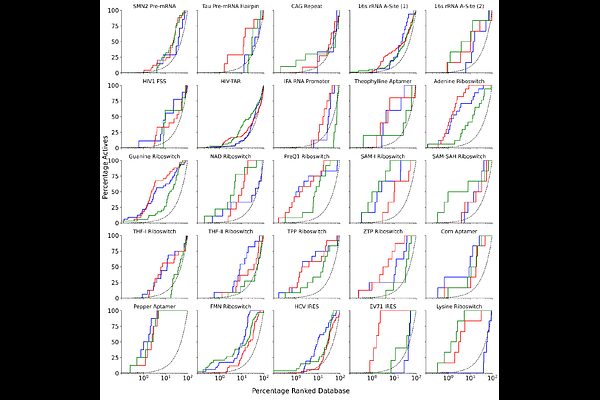Evaluating Molecular Docking Programs for RNA-Targeted Ligand Screening: Influence of Binding Modes and Ligand Types

Evaluating Molecular Docking Programs for RNA-Targeted Ligand Screening: Influence of Binding Modes and Ligand Types
Wang, K.; Jaladanki, C. K.; DeFalco, L.; Huber, R. G.; Chai, C. L. L.; Fan, H.
AbstractStructured RNAs are critical regulators of gene expression and represent promising targets for drug discovery. Despite this potential, structure-based virtual screening approaches, in particular, molecular docking, have been underutilized for RNA targets, largely due to the intrinsic conformational flexibility of RNA and the limited docking methods specifically optimized for RNA. In our study, we evaluated the efficacy of three widely used docking programs for RNA-ligand docking screens. The performance of these programs, Glide, Gold, and rDock, was evaluated using a dataset of 25 diverse RNA targets with 432 small molecule RNA binders. We found that the performance was similar across docking methods, but consistent differences emerged among RNA classes. We further explored consensus scoring across both receptor conformations and docking methods, finding that selecting the average scores across docking programs and RNA structures yielded stable performance when compared to individual methods. Finally, clustering analysis of RNA binders revealed distinct scoring function preferences for different chemotypes of RNA binders, underscoring the potential for tailored scoring strategies in RNA-targeted drug discovery. Together, this work provides a comprehensive evaluation of the performance of available docking methods in different cases of RNA-ligand docking and offers practical guidance for improving virtual screening against structured RNAs.